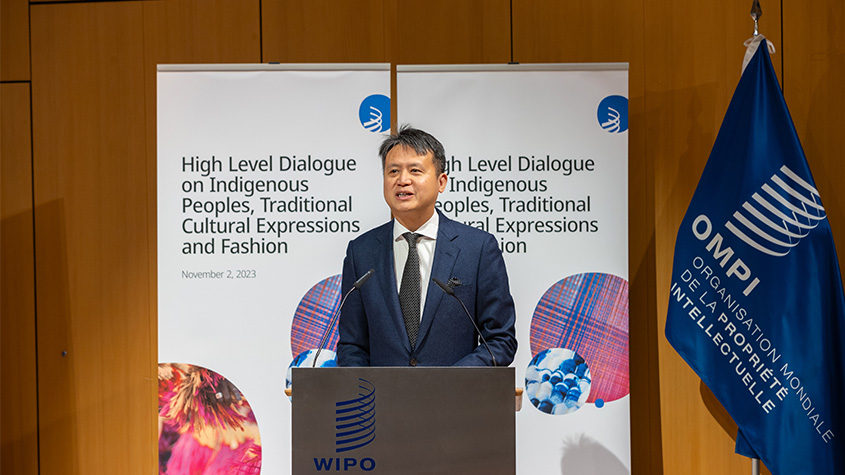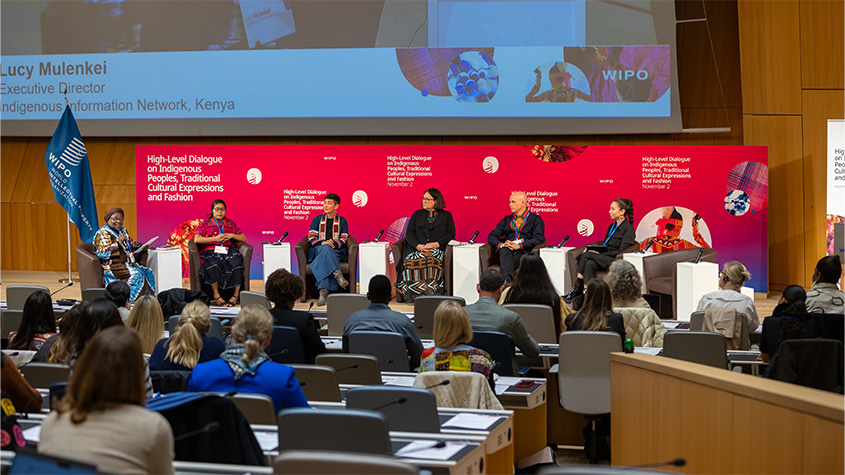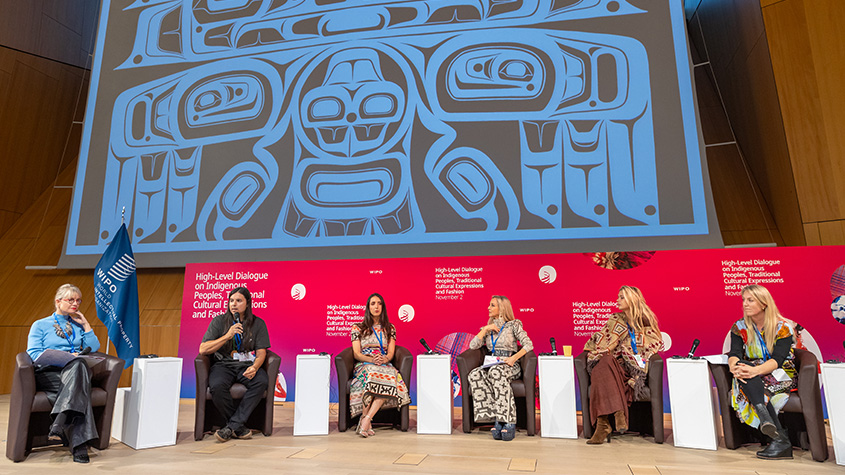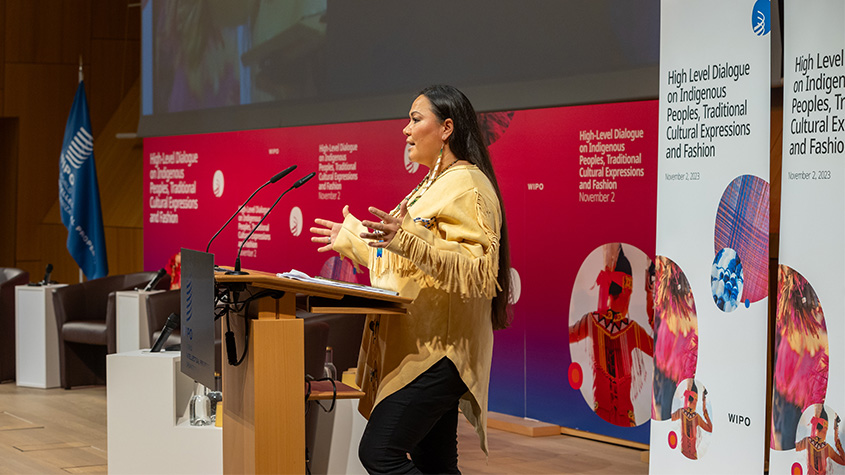WIPO Event Increases Dialogue and Mutual Understanding Between Indigenous Peoples and Fashion Companies
November 6, 2023
With an ever-growing focus on the cultural and ethical dimensions of fashion, the WIPO High-Level Dialogue on Indigenous Peoples, Traditional Cultural Expressions and Fashion held on November 2, 2023, marked a significant step towards creating space for meaningful engagement and potential collaborations between the fashion world and Indigenous Peoples.
WIPO Director General Daren Tang called for increased dialogue and mutual understanding between Indigenous Peoples and fashion companies, while opening the event that brought together hundreds of stakeholders interested in the use of traditional cultural expressions in fashion.

Ultimately, today’s session is about deepening dialogue and building trust. We hope that this is the start of an open and mutually beneficial conversation that enables fashion brands and Indigenous Peoples to move forward together.
Daren Tang
Throughout the day, Indigenous Peoples’ representatives shared their perspectives on the role, significance and importance of traditional clothing, designs, symbols and patterns. From their side, fashion companies shared their experiences, initiatives and best practices related to the ethical and fair use of traditional cultural expressions in fashion, and described their experiences and lessons learned from collaborating with Indigenous communities.

In this photo: Indigenous Peoples’ representatives discuss their unique perspectives on the value of cultural heritage in clothing. From left to right: Ms. Lucy Mulenkei (moderator), Ms. Dolores Maria Pérez Pérez, Ms. Tara Gujadhur, Ms. Aroha Te Pareake Mead, Mr. Rune Fjellheim, Ms. Sage Paul.
The Dialogue explored forward-looking ways for fashion companies and Indigenous Peoples to work together, with growing awareness that fashion and design are not just about aesthetics, but serve as powerful signifiers of culture and identity.

In this photo: representatives of Indigenous Peoples and fashion companies share their experiences with collaborations. From left to right: Ms. Pascale Goy (moderator), Mr. James Johnson, Ms. Arianne Carrillo, Ms. Ani Álvarez Calderón, Ms. Jeanne de Kroon, Ms. Belinda Cook. Photo: WIPO/Berrod.
The clothes we wear, and the colors, patterns and symbols that adorn them- speak to who we are, and where we come from. They tell our stories. They reflect our identities. And they express what we feel.
Daren Tang
Mr. Tang further added that WIPO developed Draft Steps when Considering the Use of Elements of Indigenous Peoples’ Traditional Cultural Expressions in Fashion, that were designed in consultation with Indigenous Peoples’ representatives, several fashion brands and experts in the field. The steps were formulated with the aim to provide a framework for constructive dialogue, drawing upon best practices established in other fields and industries.
Ms. Jody Potts-Joseph, a Han Gwich’in from Eagle Village, Alaska in the United States of America delivered the keynote address. Her daughter, renowned Indigenous fashion model Quannah Chasinghorse also shared a message on her experience collaborating with brands.
In her address, Ms. Potts-Joseph reflected:
As we raise our social consciousness about […] cultural expressions and fashion, we need not be fearful of working and collaborating with Indigenous Peoples, for fear of doing it wrong or for fear of making a mistake. Rather we need to make sure that Indigenous Peoples are justly compensated, that they have creative control, and that they are protected.
Jody Potts-Joseph

In this photo: Ms. Jody Potts-Joseph delivers her keynote address at the opening of the High-Level Dialogue on Indigenous Peoples, Traditional Cultural Expressions and Fashion.
Over 500 people participated in the event, which also featured testimonials and perspectives shared by Indigenous representatives and brands on collaborations.